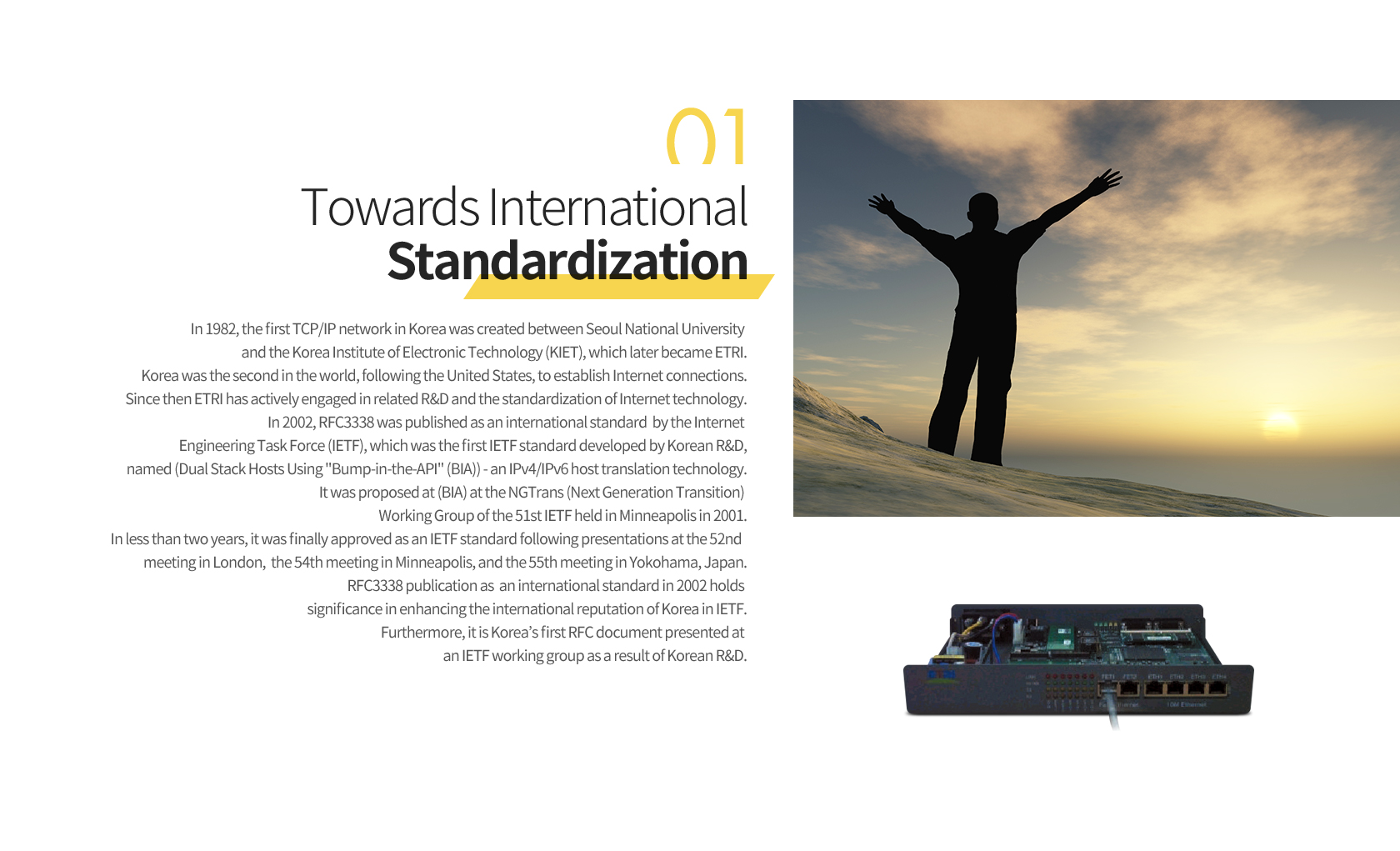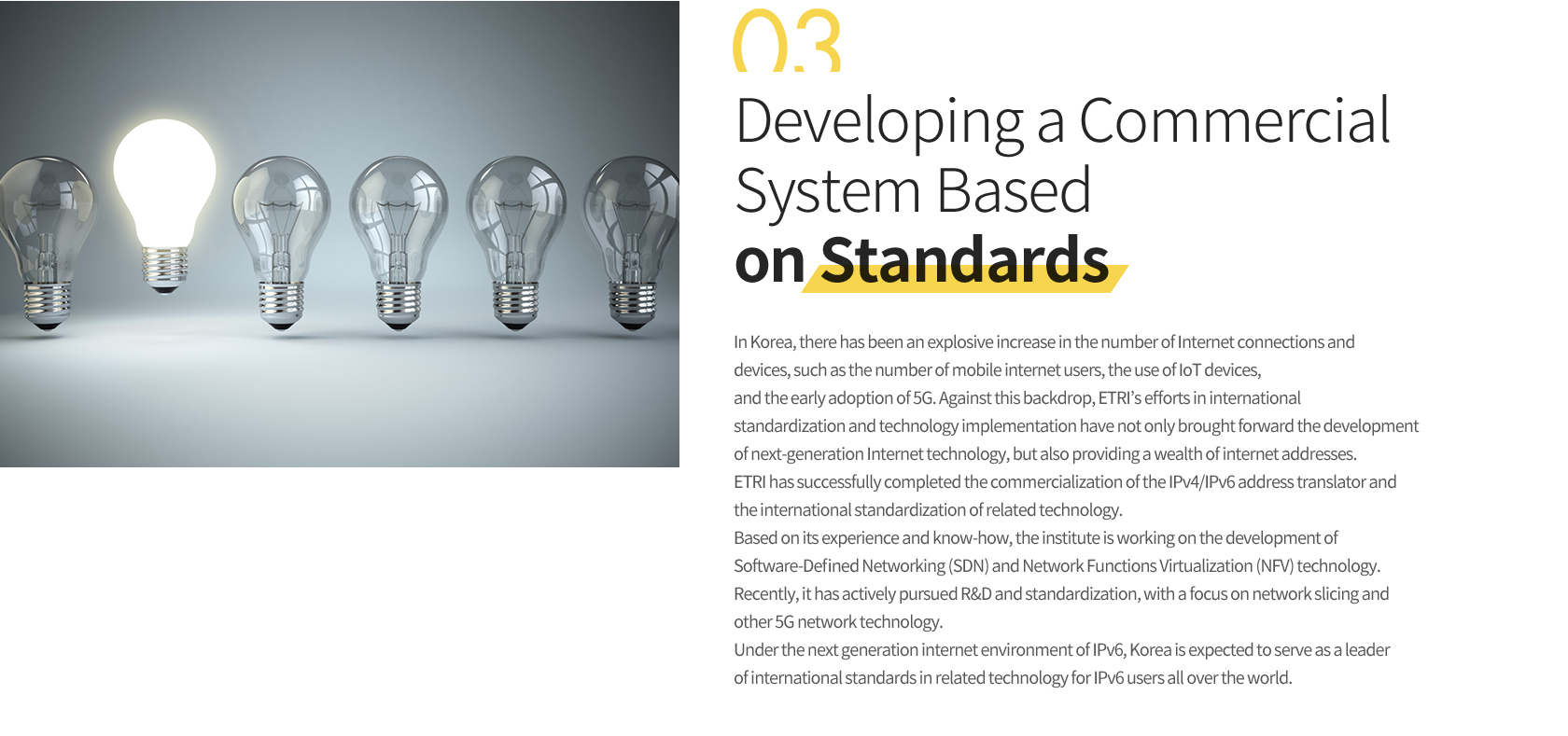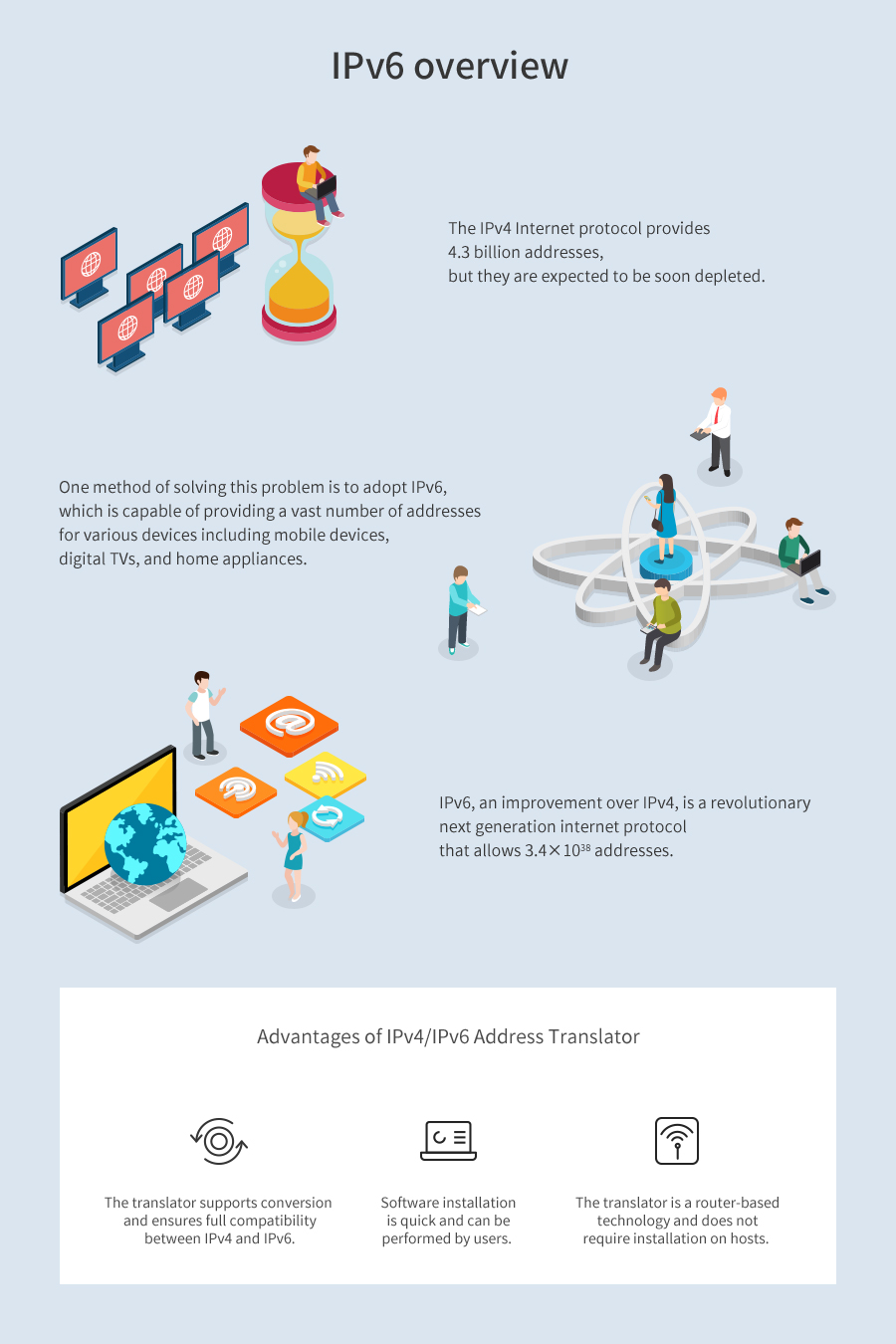





Developing
the Next Generation
Internet Protocol
Deployment of IPv4/IPv6 Address Translator
The IPv4-IPv6 address translator is a technology used to convert addresses between IPv4 and IPv6, and solve the problem with the exhaustion of IPv4 addresses.

01
Towards International
Standardization
In 1982, the first TCP/IP network in Korea was created between Seoul National University and the Korea Institute of Electronic Technology (KIET), which later became ETRI. Korea was the second in the world, following the United States, to establish Internet connections. Since then ETRI has actively engaged in related R&D and the standardization of Internet technology.
In 2002, RFC3338 was published as an international standard by the Internet Engineering Task Force (IETF), which was the first IETF standard developed by Korean R&D, named (Dual Stack Hosts Using "Bump-in-the-API" (BIA)) - an IPv4/IPv6 host translation technology. It was proposed at (BIA) at the NGTrans (Next Generation Transition) Working Group of the 51st IETF held in Minneapolis in 2001. In less than two years, it was finally approved as an IETF standard following presentations at the 52nd meeting in London, the 54th meeting in Minneapolis, and the 55th meeting in Yokohama, Japan. RFC3338 publication as an international standard in 2002 holds significance in enhancing the international reputation of Korea in IETF. Furthermore, it is Korea’s first RFC document presented at an IETF working group as a result of Korean R&D.

02
Demand for
New Internet Addresses,
IPv6
As early as 1990, ETRI began research on IPv6, which is also known as the next generation internet protocol. With its development of FreeBSD-based IPv6 protocol stacks, ETRI played a key role in technology transfers in Korea. It was the second in Korea to acquire an official IPv6 address spaces (e.g., 2001:230::/35), and ETRI allocated IPv6 addresses to local research institutes and universities.
Based on the IPv4/IPv6 host translation technology, ETRI succeeded in implementing the IPv4/IPv6 address translator. The IPv6 system is the key technology for the establishment of the next-generation Internet environment. Because it uses a 128-bit address, IPv6 can solve the problem of IPv4 exhaustion by providing addresses for a vast number of mobile devices and household appliances. However, ISPs have delayed the adoption of IPv6 even with the depletion of IPv4 addresses because of IPv4/IPv6 compatibility issues. The IPv4/IPv6 address translator supports full compatibility between the two Internet protocols, without requiring any modification of hosts connected to Internet. The IPv4/IPv6 address translator developed by ETRI was the first prototype providing the IPv4/IPv6 address translation module in Korea.

03
Developing a Commercial
System Based
on Standards
In Korea, there has been an explosive increase in the number of Internet connections and devices, such as the number of mobile Internet users, the use of IoT devices, and the early adoption of 5G. Against this backdrop, ETRI’s efforts in international standardization and technology implementation have not only brought forward the development of next-generation Internet technology, but also providing a wealth of Internet addresses.
ETRI has successfully completed the commercialization of the IPv4/IPv6 address translator and the international standardization of related technology. Based on its experience and know-how, the institute is working on the development of Software-Defined Networking (SDN) and Network Functions Virtualization (NFV) technology. Recently, it has actively pursued R&D and standardization, with a focus on network slicing and other 5G network technology.
Under the next generation Internet environment of IPv6, Korea is expected to serve as a leader of international standards in related technology for IPv6 users all over the world.









